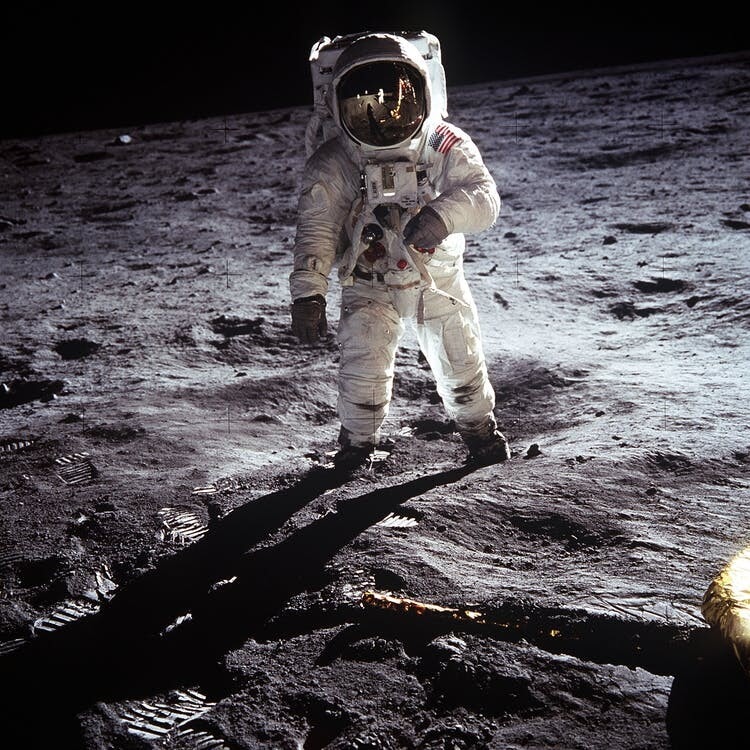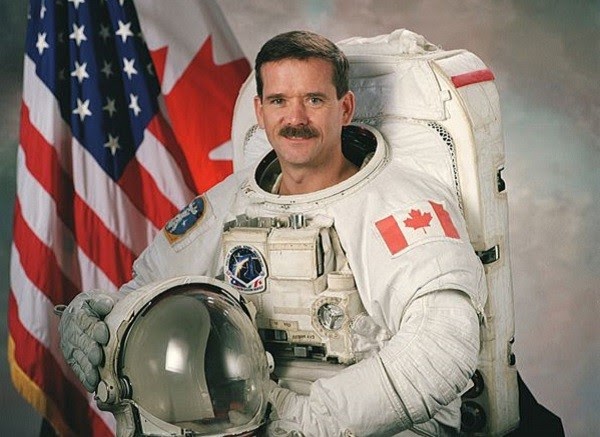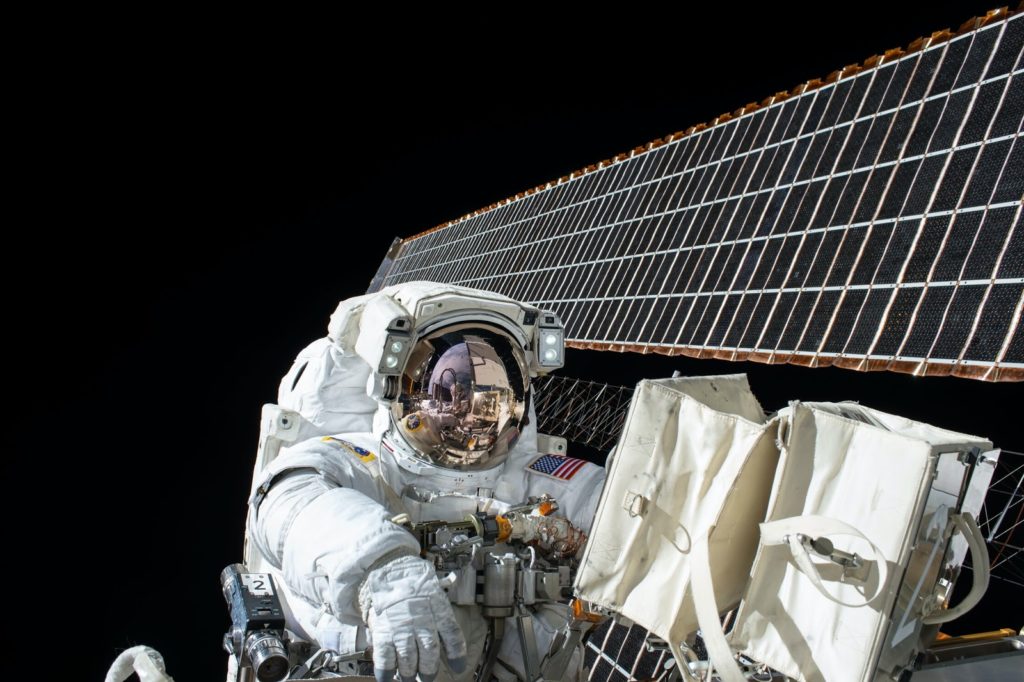We live during beautiful times. We live in a world where there is no such thing as impossible. If there’s something we can’t do, it only means that it’s ‘not possible YET‘?.
But it also means that one day, it will be.
In 1967, when Neil Armstrong had been taking his first steps on the Moon, the entire world was glued to TV screens, unable to believe this was actually happening’?while also experiencing a surge of sheer, childish, pure excitement upon witnessing something UNBELIEVABLE.
Whoever was there back then, became an astronaut themselves for a few moments.

Very few thought about the specifics of the technology the astronauts have been using, but it is the technology that made it possible.
Today, we look at technology from a different angle. It has become so native to us that time-traveling to the past (albeit hypothetical YET), has lost some of its appeal. Simply because we’re so used to technology supporting us on every step that feeling disconnected from it can cause us physical discomfort.
Everyone who has ever forgotten to take their phone with them before leaving their house and felt a wave of panic and helplessness probably knows what I’m talking about.
And though while we are quick to embrace some forms of technology and admire others, we are often painfully slow in using the tools that can take us to the stars in our everyday lives. Metaphorically speaking.
Guess that’s part of human nature, to dream big. Across the legal industry, which I’ve been part of for the last 10 years, it is more than common for lawyers to throw themselves onto hard work, thriving towards the impossible at all cost.
In a way, the industry itself lays the groundwork for this tendency, supporting the competition and adding up to the understanding that there is always someone else who could do it in your place. So you have to be the one to get up and take the lead, to take on another task or the most complicated case, to push yourself even harder.
At the end of the day, you’d be the one to get all the praise. You made it all by yourself.
You’d be taking that first step on the Moon.
What remains outside the camera’s view is that this pursuit of the big goal often leaves legal experts exhausted, burned out, or completely repulsed by their profession by the age of 40. I was lucky enough to start thinking about it when I was 26, when I still had energy to spare. And yet I know a great deal of amazing lawyers who were not as quick.
The good thing is’?human nature is very flexible. And so is our attitude.

In his bestselling autobiography ‘An Astronaut’s Guide to Life on Earth’?, the Canadian Space Agency astronaut Chris Hadfield reveals a great deal about astronaut training, both the technical details and the psychology of preparing to fly in space.
There is a separate chapter in his book dedicated to the way NASA helps astronauts shape the right attitude and accept the fact that they might as well be those astronauts that never get to leave Earth, and yet still be perfectly happy with what they are doing.
Just think how upsetting that may be, putting all that hard work (and years!) into practicing, being a mere step away from your dream and the dream of millions of people out there, and never even getting to hear that breathtaking ‘T minus zero’? lift-off!’? inside your earpiece for real.
What helped Chris Hadfield come to peace with the idea he might never be flying in space is the mundane understanding that he is already doing something he loves.
He started as a fighter pilot knowing that he loved to fly, he went on to being a test pilot knowing that he loved to come up with the most unique ways to solve critical problems, and continued on to his space training knowing that his pilot experience and passion for technology could save the lives of those who were currently in orbit and couldn’t risk wasting another second.
That made the idea of never seeing Earth from that cherished 200-miles-away distance a lot less painful for him, knowing that he was already doing something that really mattered.
But where does it leave lawyers?
Certainly, the legal profession has less otherworldly flavor than space exploration.
But think about that thing that brought you to it in the first place. Even if it wasn’t your childhood dream, it must have been an ultimate goal at some point (lest you probably wouldn’t have put up with all those sleepless nights at law school).
Your passion, that thing that made you think: ‘I wanna be a lawyer’? is the exact thing to hold on to every single day of your legal practice.
But what if it gets overshadowed by other things? What if all the stress, the deadlines, billable hours, and bad-tempered clients make it bleak or get your passion wiped out completely?
Then the answer is simple: it’s time to take a step away from WHAT you are doing and look at HOW you are doing it.
And in the meantime, also look at the ways astronauts are doing their jobs.
So here are the three things that I picked up from an astronaut’s work (and other legal experts can, too):
1. Know everything that could go wrong.

Chris Hadfield mentions that during his training, there have been plenty of times when he would start his new day with the question:
“Okay, so what’s the next thing that is going to kill me today?”
While highlighting the importance of his mission, this question also helped him prepare for any unlikely yet potentially fatal scenario’?and develop a response plan that would help him survive in the most unfriendly environment one could possibly imagine.
And also, if anything unexpected ever came up, to act calmly instead of stressing out.
Here on Earth, lawyers could do the same thing (save the deadly part), and plan ahead for the least probable, yet most daunting scenarios in advance. Not only will this inevitably make you a better expert by forcing you to research every little probability and calculate every single detail into the master plan. It will also cause you to relive the worst moments in your imagination, and be better prepared for the unexpected.
After all, half of the stress comes from not knowing what to do next.
So before any important task, it is always good to put down as many things that could go wrong, as possible. Back when I was a lawyer, I would often invite my colleagues to brainstorm together, and this brings me to the next part.
2. Learn to trust your team.

In space, everyone has their role laid out in front of them. Before launch, astronauts go through their task checklists millions of times, enough to get them memorized. Likewise, they know exactly what their crew mates are doing as well, so no bumping heads along the way.
Throughout the most difficult operations, astronauts are taught to function as a single unit.
So if anything unprecedented comes up, most often it is obvious for them who should step in and take action’?and that should be whoever is best qualified for the job. Even if their life depends on it, they are taught to step away, trust their team, and support them in everything they do.
Lawyers, on the other hand, have a considerable amount of trust issues.
Don’t get me wrong, I am not saying that lawyer’s can’t be amazing colleagues or team players. It’s just that more often than not, we are never taught to delegate our work, or trust someone else to help out. First, because deep down we’re afraid they might ultimately use it to their advantage, but second, because we want to be that first man on the Moon.
What we often forget is that Neil Armstrong was never alone.
And what got him to walk the Moon was coordinated, pitch-perfect teamwork of his crew, and hundreds of people in Mission Control ready to invest every bit of their knowledge to help him. Learning to delegate some of my work was probably the hardest thing I had to do in my lawyer career. It had to do with plenty of fears, but eventually, I had time to go back to my family, and energy to enjoy my life outside of office walls.
I started by offering help to my colleagues, and then, when I needed a hand, I pushed myself to be brave enough to ask for it. Just the right amount of assistance that made a difference in my task, yet did not feel like I was throwing a pile of work onto someone else’s shoulders.
I never stopped being afraid that my team was going to mess things up or take all the credit for what I was doing’?but that only led me to choose the right people to share the work with more carefully.
At the end of the day, I knew that given the circumstances, we might as well make a heck of a good space crew.
3. Choose the right tools.

We all know that the Apollo 11 mission flew the Saturn V spacecraft to get to the Moon, and Eagle Lunar Module to land on it.
But do we really know how many prototypes were considered for the same task, but never made it to the shortlist?
Probably not, and that’s perfectly fine. Because what matters is the right technology that will get the job done flawlessly, not the one that nearly did it. That would not fail at launch, that would have all life support systems functioning in the vacuum of space.
The same technology that we could barely believe could exist. But then again, we got painstakingly good at challenging the impossible.
Luckily, lawyers don’t need software to calculate orbital mechanics, risking to get off course and drift off into the void. But this doesn’t mean that we should treat our legal tech toolset with any carelessness, or try to make do with whatever we have.
Instead, we need to dare to search for the solution that really works, and not be afraid to use it. These days, you no longer need to adjust to the available tech. You are at liberty to choose the exact solution that meets your needs, and like astronauts, to expect updates and improvements whenever the need arises.
That’s why I started building AXDRAFT contract automation platform’?because no other solution fully met my needs as a lawyer, and I felt that if there is at least one person within legal or business division out there who will be as happy as I am using this tool, I would be doing something that matters. Because I would be using the exact tool that was perfectly capable of taking me to the Moon’s orbit (as long as there is one for the legal world).
Even if I never get to leave Earth to get there.